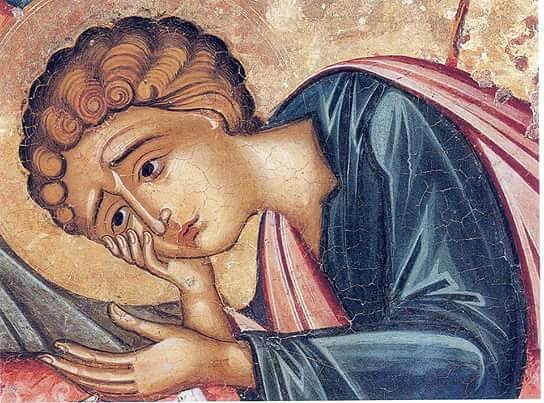

|
The Kartvelologist The Kartvelologist” is a bilingual (Georgian and English) peer-reviewed, academic journal, covering all spheres of Kartvelological scholarship. Along with introducing scholarly novelties in Georgian Studies, it aims at popularization of essays of Georgian researchers on the international level and diffusion of foreign Kartvelological scholarship in Georgian scholarly circles. “The Kartvelologist” issues both in printed and electronic form. In 1993-2009 it came out only in printed form (#1-15). The publisher is the “Centre for Kartvelian Studies” (TSU), financially supported by the “Fund of the Kartvelological School”. In 2011-2013 the journal is financed by Shota Rustaveli National Science Foundation. |
"Stream of Consciousness" and Otar Chiladze's Novels
Otar Chiladze is one of the Georgian writers who developed Georgian prose on the basis of numerous theories and doctrines to better present reality, characters of heroes, and their own worldviews in literary works produced in the interdisciplinary environment of the 20th century. Correspondingly, almost all main trends characteristic of the 20th-century literature can be seen in Chiladze's novels. These include clear-cut Mythologism or Remythologisation, elements of "Magic Realism" characteristic of the Latin American prose, deep psychologism - an attempt to understand the spiritual world of humans, which the author managed to show, taking into account the theories of depth psychology by Sigmund Freud and Carl Gustav Jung. His works in the genre of new historic prose are also noteworthy. The characteristic manner of writing should also be mentioned. Narration proceeds from the subjective perspective and attempts are periodically made to go deep into not only the conscious, but also the unconscious of heroes by means of the method of the "stream of consciousness ".
keywords:"Stream of Consciousness", and Otar, Chiladze's, Novels Category: SCHOLARLY STUDIES Authors: Linda Tsitskihvili The Georgian Translations of Andrew of Crete’s Great Canon and Some Aspects of the Canon’s Establishment as a Genre
keywords:The Georgian, Translations, of Andrew, of Crete’s, Great, Canon, and Some, Aspects, of the Canon’s, Establishment, as a Genre Category: SCHOLARLY STUDIES Authors: Linda Tsitskihvili Georgian Hymnography
The paper sheds light on several trends of the development of Georgian hymnography, schools and the history of its study: from the standpoint of form, theology, literary-historical, symbolic-imagery and ideological standpoints. Identified are hymnographic schools of Palestine and Sinai, Tao-klarjeti, Mt. Athos, Gelati, Shiomghvime, David Gareja and the Catholic sate of Mtkheta, in particular the theological-hymnographic schools of Anton the Catholicos, which determined the stages, level and trends of the development of hymnography in Georgia. Georgian hymnography was in close relations with that of Byzantium with its themes, world view and metaphorical system, hence it is conceptualized in the context of Byzantine hymnographic culture. The difference is shown between the musicality and poetics of Georgian and Byzantium hymn, manifested in the polyphony of Georgian song and the originality of the form of hymn. The outlines the prospects of research from a new point of view into the history and theory of Georgian and Byzantine hymnography. keywords:Georgian hymnography, the oldest iadgari, Tao-Klarjeti Hymnographical schools, Athonite Hymnographic school. Category: SCHOLARLY STUDIES Authors: Unknown Author The Hymn on Tiflis from the Wardā Collection
The composition of the hymn on Tiflis is typical for one of the ‘catastrophic’ hymns ascribed to the poet GīwargīsWardā (the 13th century). Its main part consists of very detailed and shockingly naturalistic descriptions of the terrors and destruction caused to the city by the foreign invaders. The terrible devastation and massacre makes the author doubt God’s justice, which he expresses by addressing to Him the crucial questions left without answer (stanzas 50–55). Finally Righteous God rebukes the author and explains to him His will, i.e. testing humans before their transition to the other world of the eternal life (stanzas 56–61). Such a structure is met also in several other hymns ascribed to Warda. The role of the final condemner and revealer in different hymns may be played by various figures, such as God’s Righteousness, or the author’s Mind, or someone else. Thus, this type of hymn may be considered apologetic. The historical context of the hymn is of particular interest. It describes the events that took place in 1220–1226 AD, a period when several different invaders encroached upon the Georgian people. These events were described in Arabic, Persian, Armenian and Georgian sources, and hence, there is enough information with which to compare the hymn. keywords:Syriac hymnography, Warda Collection, A hymn on Tiflis. Category: SCHOLARLY STUDIES Authors: Unknown Author
Heinz Fähnrich – “The Queen of the Forest; Myths and Folk-tales from Georgia
*** After opening the borders between the Soviet Union countries and the civilized West were opened at the end of the previous century, interest in Eastern culture gradually increased in Europe. This idea may seem debatable for some since it was the Humanists who started to long for studying and learning the benefits of its culture in Europe. Obviously, we do not aim to argue with this well-known fact. We will only need to take into consideration the idea given here related with almost half-a-century break, which cut numerous states, including, Georgia, off from the western course and its prospects of development. A sudden change of the mentioned situation again gave way to bilateral cultural relations. Obviously, this two-way longing and aspiration is subject to risk as well unless such a sparse nation as Georgia finds the way to retain its originality. keywords:Georgian folklore, Heinz Fähnrich Category: CHRONICLE OF EVENTS Authors: Unknown Author |
Categories Journal Archive |



 Andrew of Crete’s Great Canon is one of the oldest and most important monuments of Christian spiritual heritage. There are several factors that make this mas terpiece of hymnology particularly important for Georgian liturgical and hagiographical scholarship. The Hymns of Repentance by the great David Aghmashenebeli (David IV the Builder, 1073 – 24 January 1125), King of Georgia, are inspired by this Canon. In addition, the names of three of the most notable representatives of Georgian literature, Ekvtime Mtatsmideli ( St. Euthymius the Hagiorite), Giorgi Mtatsmideli (George the Hagiorite, George the Athonite), and Arsen Iqaltoeli (Arsen of Iqalto), are associated with this work; they have all translated St. Andreas’ Canon of Repentance and have established it as one of the most important and monumental works of the Christian liturgical poetry in Georgia. Beyond these historical indications, as the current reevaluation of asceticism as both a religious -mystical experience and a unique phenomenon in itself is taking place, the Canon is particularly relevant in today’s world. Even the representatives of Poststructuralism and Postmodernism have taken interest in the essence of Askesis, recognizing it as a positive occurrence. Furthermore, asceticism is regarded as the universal prerequisite of a culture as it is, as a basis that largely determines relationships between cultures and creates possibilities of initiating communications between them. It is widely recognized that the foundations of universal ethics are highlighted precisely in ascetic literature and that today’s intellectual elite cannot add anything new to these principles. Some scholars even think that the alternations of strong, complex, dramatic feelings that are associated with repentance, which is the leading motif of Askesis, are expressed in liturgical poetry better than in treatises. As such, they strongly advise deep contemplation of Andrew of Crete’s hymns of atonement, his famous Great Canon [16, p. 65].
Andrew of Crete’s Great Canon is one of the oldest and most important monuments of Christian spiritual heritage. There are several factors that make this mas terpiece of hymnology particularly important for Georgian liturgical and hagiographical scholarship. The Hymns of Repentance by the great David Aghmashenebeli (David IV the Builder, 1073 – 24 January 1125), King of Georgia, are inspired by this Canon. In addition, the names of three of the most notable representatives of Georgian literature, Ekvtime Mtatsmideli ( St. Euthymius the Hagiorite), Giorgi Mtatsmideli (George the Hagiorite, George the Athonite), and Arsen Iqaltoeli (Arsen of Iqalto), are associated with this work; they have all translated St. Andreas’ Canon of Repentance and have established it as one of the most important and monumental works of the Christian liturgical poetry in Georgia. Beyond these historical indications, as the current reevaluation of asceticism as both a religious -mystical experience and a unique phenomenon in itself is taking place, the Canon is particularly relevant in today’s world. Even the representatives of Poststructuralism and Postmodernism have taken interest in the essence of Askesis, recognizing it as a positive occurrence. Furthermore, asceticism is regarded as the universal prerequisite of a culture as it is, as a basis that largely determines relationships between cultures and creates possibilities of initiating communications between them. It is widely recognized that the foundations of universal ethics are highlighted precisely in ascetic literature and that today’s intellectual elite cannot add anything new to these principles. Some scholars even think that the alternations of strong, complex, dramatic feelings that are associated with repentance, which is the leading motif of Askesis, are expressed in liturgical poetry better than in treatises. As such, they strongly advise deep contemplation of Andrew of Crete’s hymns of atonement, his famous Great Canon [16, p. 65]. The hymn under discussion is found only in one copy of the Wardā‘ōnītā collection, the largest East Syriac hymnologic collection, containing more than two hundred hymns, still being in use in the Church of the East (so called Nestorian). The hymn is met only in one manuscript of the collection, namely in Add. 1983, dated to 1550 AD (fol. 181r), in the Cambridge University Library.
The hymn under discussion is found only in one copy of the Wardā‘ōnītā collection, the largest East Syriac hymnologic collection, containing more than two hundred hymns, still being in use in the Church of the East (so called Nestorian). The hymn is met only in one manuscript of the collection, namely in Add. 1983, dated to 1550 AD (fol. 181r), in the Cambridge University Library. In 2012 the König Publishing House issued the book by the outstanding German Kartvelologist Heinz Fähnrich „Königindes Waldes; Sagenund Mythenaus Georigen“. The book includes materials which depict the Georgian reality and views them from different perspectives. Namely, the Georgian mythological-poetic thinking vision not only as exemplified by folkloristic faith and images but also by means of folk interpretation of historical and religious stories. It is worth noting that Heinz Fähnrich has published numerous works in the field of Georgian folk studies. They have already been reflected in the Georgian scholarly circles.
In 2012 the König Publishing House issued the book by the outstanding German Kartvelologist Heinz Fähnrich „Königindes Waldes; Sagenund Mythenaus Georigen“. The book includes materials which depict the Georgian reality and views them from different perspectives. Namely, the Georgian mythological-poetic thinking vision not only as exemplified by folkloristic faith and images but also by means of folk interpretation of historical and religious stories. It is worth noting that Heinz Fähnrich has published numerous works in the field of Georgian folk studies. They have already been reflected in the Georgian scholarly circles.